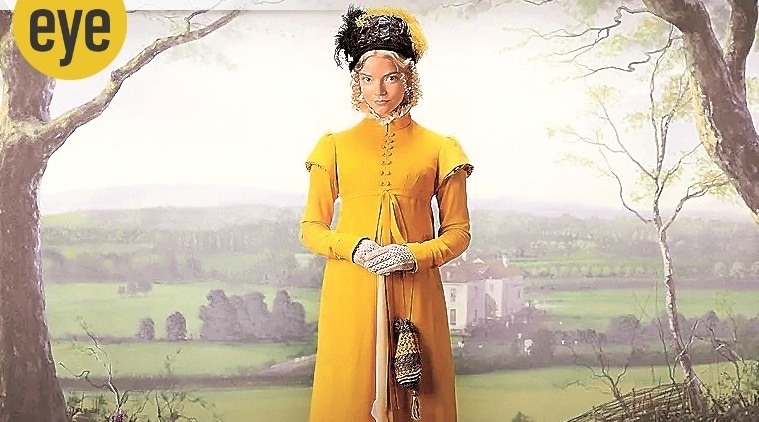 Speaking her mind: A still from Autumn de Wilde’s Emma.
Speaking her mind: A still from Autumn de Wilde’s Emma.
It’s hard to pull off a film with a leading lady who is rather unlikeable. Especially when that film’s focus stays steadfast on her. Emma. (yes, there’s a full stop at the end of the title, quite appropriately) in its latest filmed version, directed by Autumn de Wilde, manages that feat deftly: by the end of the film’s two-hour run, we move from exasperation to fondness, and that’s pretty much the path author Jane Austen had steered us towards.
Fans of Austen speak of Pride and Prejudice (1813) as their favourite, because Elizabeth Bennet wins the likeability stakes hands-down. Even her other novels (Sense and Sensibility, Persuasion, Mansfield Park), each one an affectionate yet sharply observed account of men and women, and their mores and manners, have pleasing prominent female characters. But Emma, with her meddlesome, I-know-best ways, takes some getting used to: she is a haughty little miss, all dressed up and everywhere to go.
Austen’s characters came from the landed gentry, fading nobility, newly-moneyed upstarts, genteel poor. It’s the layering and the interaction between them, in the village and the neighbourhood they lived in, that fascinated her, forming the basis of her work. The intersections she drew between class and gender are equally valid today: Emma (1815) has been the basis of one of Hollywood’s best coming-of-age dramas, Alicia Silverstone’s Clueless (1995); Bollywood had one of its own, not quite as accomplished, in Sonam Kapoor’s Aisha (2010).
Given Austen’s preoccupations with love and marriage, we often forget just how funny she could be, how gently-but-savagely she could skewer pretensions. De Wilde’s adaptation of the source material is shot through with a sense of fun and exuberance, and a recognition that manners have nothing to do with class. The performances are all wonderful. Anya Taylor-Joy, as the 21st-century version of an 18th-century girl, is excellent. Emma goes about trying to shape her new companion Harriet in her own shadow, steering the latter away from a match that would have been perfect. The apogee of annoyance comes at a picnic where Emma flings a stinging barb at one of those middle-aged matrons who never seem to be able to do the right things, and it becomes the turning point: of the character, and the movie.
Those who are familiar with the novel know that Emma will mend her ways, and that’s got a lot to do with the mentorship of her much older suitor, who only lays bare his heart when he’s aware that she’s changed for the better. Mr Knightley, who was clearly much older than Emma in the novel, appears much younger in the movie (in a bid not to seem creepy to the multiplex generation, though, in Austen’s day, a good catch was the main thing, age no bar). It helps enormously that he’s played by Johnny Flynn, popular singer and musician, suitably sexy in a tousle-haired, faint-scar-on-face way: we can imagine this Emma and this Mr Knightley in a cosy, companionable marriage.
Emma released in February in the US and the UK and would have found its way to us if the pandemic hadn’t put a stop to all theatrical activity. Hopefully, a streaming platform will grab it, and soon.